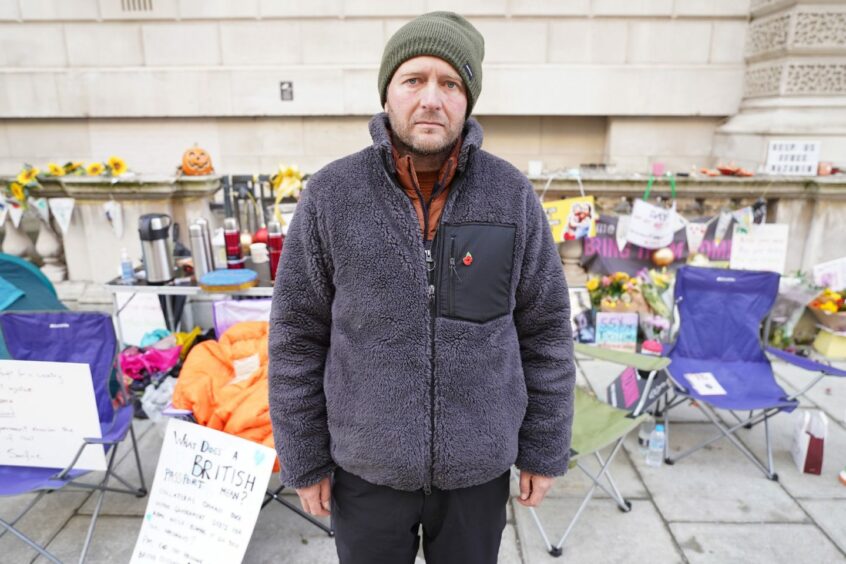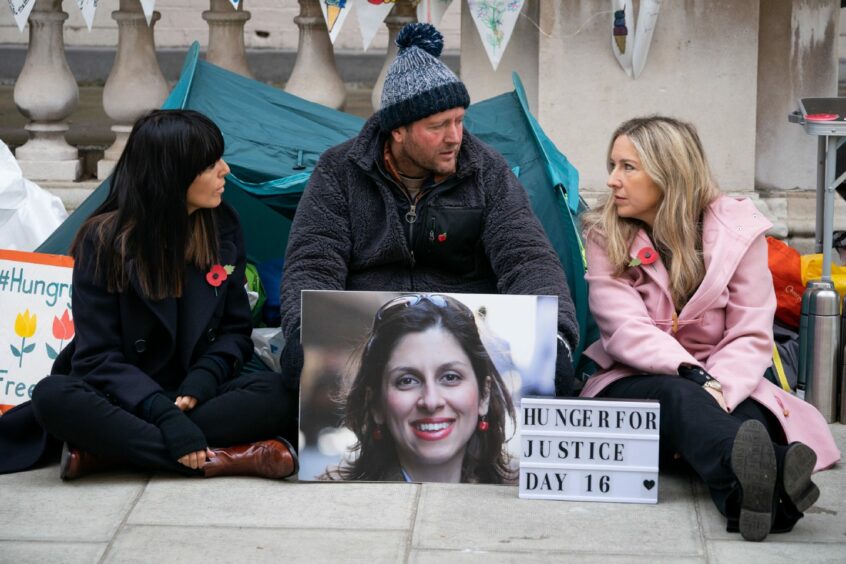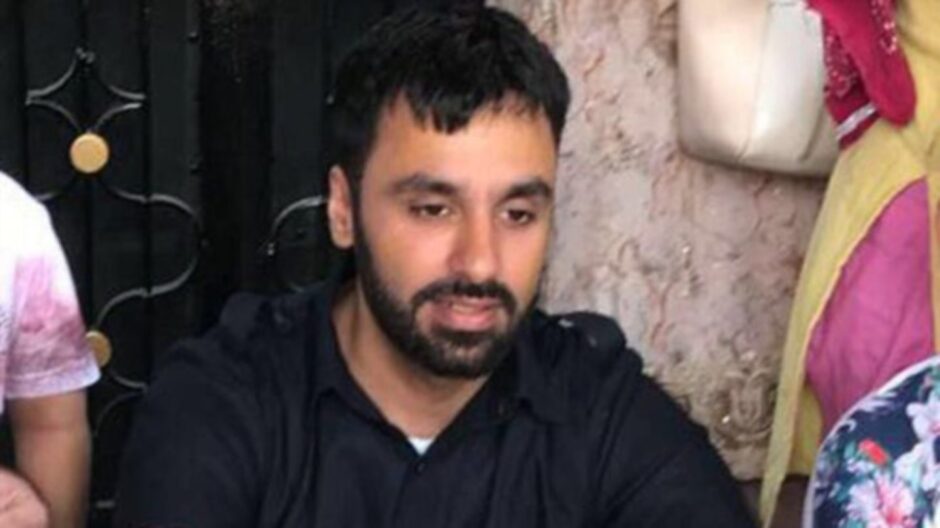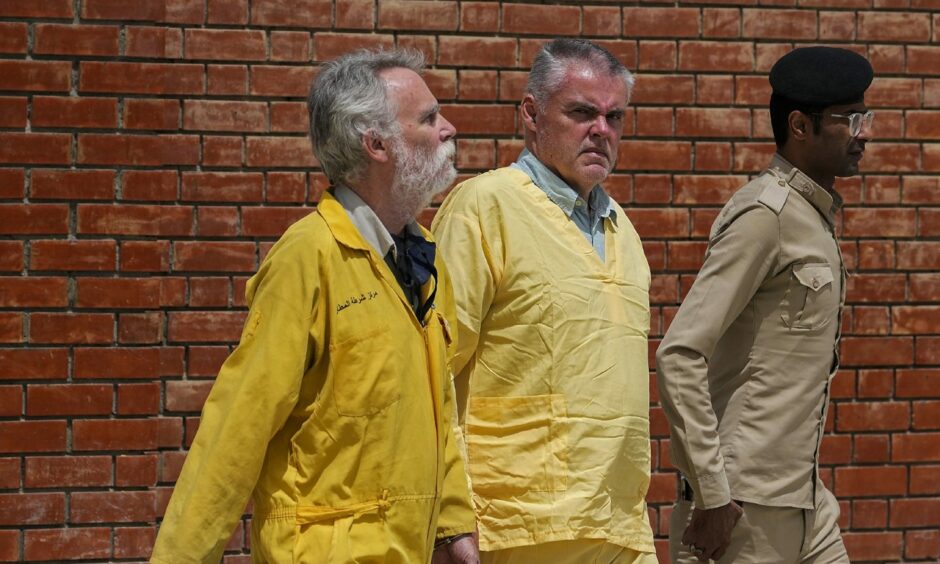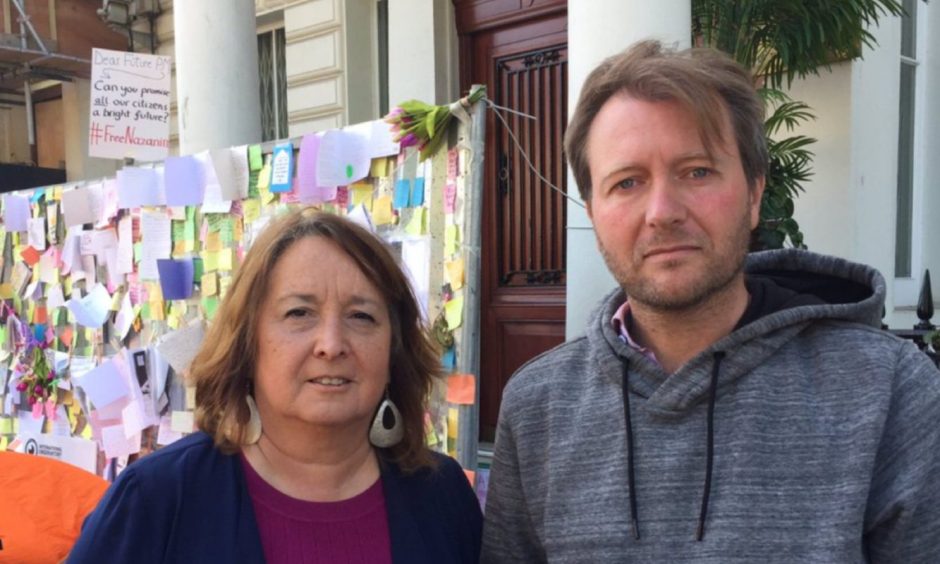
When Nazanin Zaghari-Ratcliffe was arrested in Iran on April 3, 2016, she was terrified.
Nazanin was with her 22-month-old daughter when she was detained by Iran’s Revolutionary Guard as she boarded a flight home after visiting family for Iranian New Year.
Despite the horror of the arrest, Nazanin was comforted by the knowledge that, as a UK citizen, the UK Government would swoop in to help her.
Sadly, that assistance did not come and it took years of public outcry, and five years under Iranian detention, before she was released.
Nazanin Zaghari-Ratcliffe and she spent years locked up in an Iranian prison before she even ever having a meeting met with UK Government officials.
Her family was forced to watch on as international prisoners from other countries were given regular sessions and legal advice.
Nazanin spent five years under Iranian detention before she was released.
Her first summit with consular officials only took place after she had already completed her first sentence – despite the UK Government publicly acknowledging her innocence.
MP in fight to keep Brits safe
That is why politicians and campaigners are fighting a race against time to bring in new legislation guaranteeing a legal right to help for Brits abroad who are at risk of torture, death or human rights abuses.
The provision of consular support by the UK Government is currently discretionary and decided on a case-by-case basis, despite campaigners describing these interventions as hugely important.
Edinburgh West MP Christine Jardine will introduce a Private Members’ Bill at Westminster that would enshrine in law a right to support.
Jardine and leading human rights activists hope to bring in new powers before the next General Election that would provide landmark protections.
She said the Bill has already received cross-party support from MPs from all parties but time could be their greatest enemy, with the election to be held later this year.
“I think it’s something most of us would take for granted that we already have.”
Christine Jardine
The issue has gained greater prominence in recent years, with a number of high-profile cases.
Nazanin was detained for six years on spying charges before flying home in May 2022.
Iranian authorities alleged she had plotted to topple the government in Tehran, but no official charges were ever made public.
It has been claimed Nazanin was actually being held to force the UK into settling a £400 million dispute which dates back to the 1970s over a cancelled order for tanks.
It took almost 18 months for the UK Government to publicly state that it considered Nazanin, who has dual citizenship, a British citizen.
Years of heartache could have been avoided
The prominence of her case was, in part, down to the tireless campaigning of her husband Richard, who endured hunger strikes to force politicians to act.
Speaking exclusively to The Sunday Post, Richard described the handling of Nazanin’s case as a car crash and said Jardine’s Bill could have spared his family years of heartache.
He said: “It’s something we’d been calling for even before Nazanin got home. The system, as it is now, is just unfair. If you make enough noise, you get attention.
“We had five foreign secretaries and there have been a couple more since then.
“Each time you need to build a new relationship and get your issue into the priority list – which just feels like a really dysfunctional way of doing things.
“Imagine with the police if every time there was a change of chief inspector you had to work your way up to get them to take your murder or kidnapping seriously.
“It means you end up with this untrusting relationship with the government, where you don’t know what they’re doing and there’s no accountability.
“You don’t know what’s going to happen next because you’re not entitled to anything.”
The UK Government has refused to publicly acknowledge any mistakes in the handling of Nazanin’s case – although Richard claims this has happened privately.
He described the years it took officials to finally meet with Nazanin as “shameful” – especially as other international prisoners from countries with more robust legal protections, such as Germany, did receive visits during this time.
Other countries, such as Mexico and the Netherlands, offer technical, legal and sometimes financial assistance to their nationals imprisoned abroad.
But for many UK citizens and their families, help has been less forthcoming.
Scots facing abuses abroad
Jagtar Singh Johal, from Dumbarton, was in Punjab, northern India, for his wedding when he was arrested by police on November 4, 2017.
He is said to have been tortured, including with electric shocks, and faces the death penalty as a result of his campaigning for Sikh rights.
It is widely accepted that when individuals are detained abroad, the greatest risk of serious human rights violations is within the first 48 hours.
The Foreign Office was made aware of his detention immediately by family members but consular officials did not see Jagtar until almost two weeks later on November 16.
Ruth Zuccarello, who lives in Kirkcaldy in Fife, says her family faced a terrifying ordeal when her brother, Jim Fitton, faced the death penalty in Iraq over smuggling charges.
Jim, a retired geologist who is originally from Bath but now lives in Malaysia, was detained after being accused of attempting to smuggle historic artefacts out of the country.
Ruth says the UK Government were slow to react, failed to address the family’s concerns and only responded to state its opposition to the death penalty after the case had gone to trial.
She told The Sunday Post she strongly backs Jardine’s Bill and wants to see clearly defined procedures in place for dealing with urgent cases.
Ruth said: “There was no transparency. The family were receiving greater support from members of the Malaysian government at the outset.
“It was our petition that moved the case along, the thousands who wrote to their MPs getting them to lobby the Foreign Office for them to engage with the Iraqi authorities and prepare the ground for Jim’s appeal.
“Petitions shouldn’t be necessary for pushing a government to do the right thing and look after their nationals both at home and abroad.”
Delayed and infrequent visits
A 2018 report by the human rights organisation Redress found the UK’s haphazard approach has led to numerous complaints of a lack of effective consular assistance, including failures to respond to allegations of ill-treatment.
It also noted delayed or infrequent consular visits.
Chris Esdaile, senior legal adviser at Redress, said: “Consular assistance is particularly important to prevent and respond to cases of serious human rights abuses, such as torture, arbitrary detention, or state hostage-taking, and plays a vital role in reducing the psychological impacts of such abuses when they occur.”
“Yet the British government currently accepts no legal responsibility to support its nationals even when they face serious human rights violations, and consular assistance is provided entirely at its discretion.”
He added: “Introducing a legal right to consular assistance would not only benefit British nationals who find themselves in dire circumstances while travelling abroad, but it would also benefit the UK by offering a structured approach for the protection of its nationals.”
Christine Jardine met Richard Ratcliffe while he was on hunger strike and again when he came with Nazanin to speak to the Scottish Lib Dem conference. She insisted the lengths he was forced to go to should never be necessary.
The Lib Dem MP said: “We assume that if something happens, someone will speak to the Foreign Office and you’re guaranteed assistance – but you’re not.
“I think it’s something most of us would take for granted that we already have.
“After Richard and I spoke about it, I thought about the number of cases where people have found themselves in that situation over the years.
“I thought there needs to be something written down that says if your human rights are under threat in a foreign country, you can have consular support.”
The Foreign Office said: “Our consular staff are available 24/7, 365 days a year and support over 20,000 British nationals a year, including victims of crime, or those who have been detained or hospitalised.
“The safety and security of British nationals overseas is a top priority and we look into all requests for consular assistance on a case by case basis.”

Enjoy the convenience of having The Sunday Post delivered as a digital ePaper straight to your smartphone, tablet or computer.
Subscribe for only £5.49 a month and enjoy all the benefits of the printed paper as a digital replica.
Subscribe